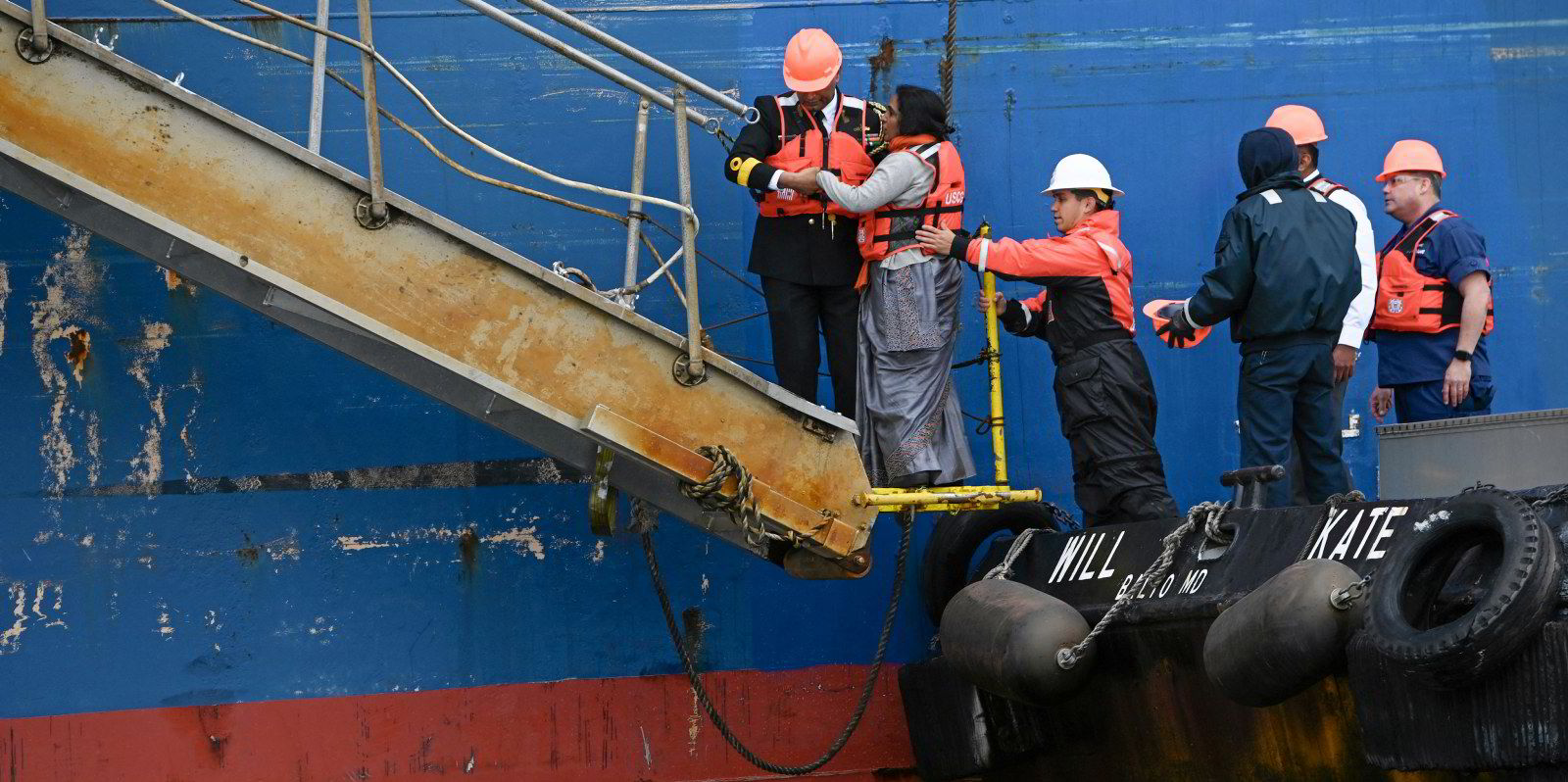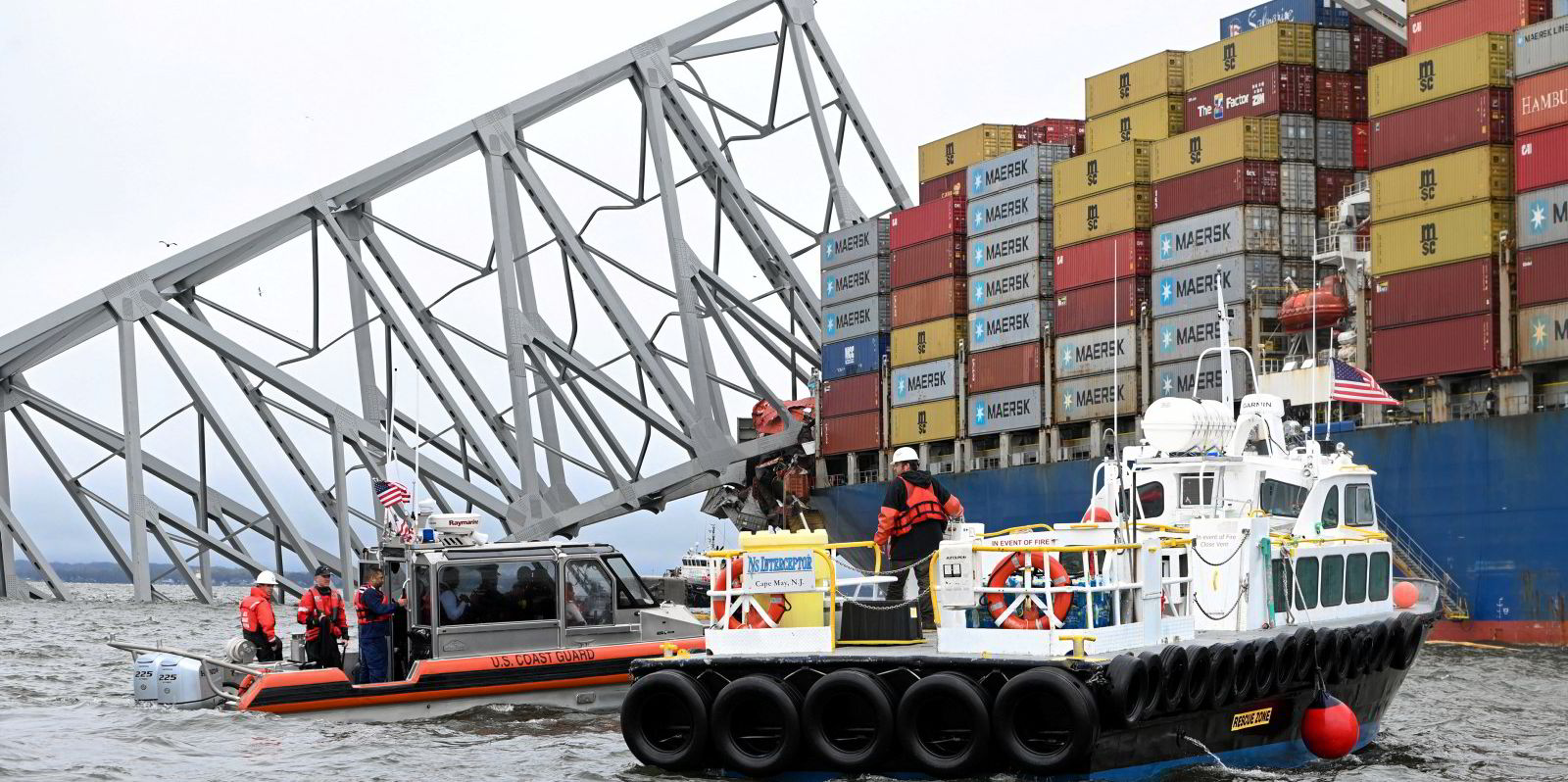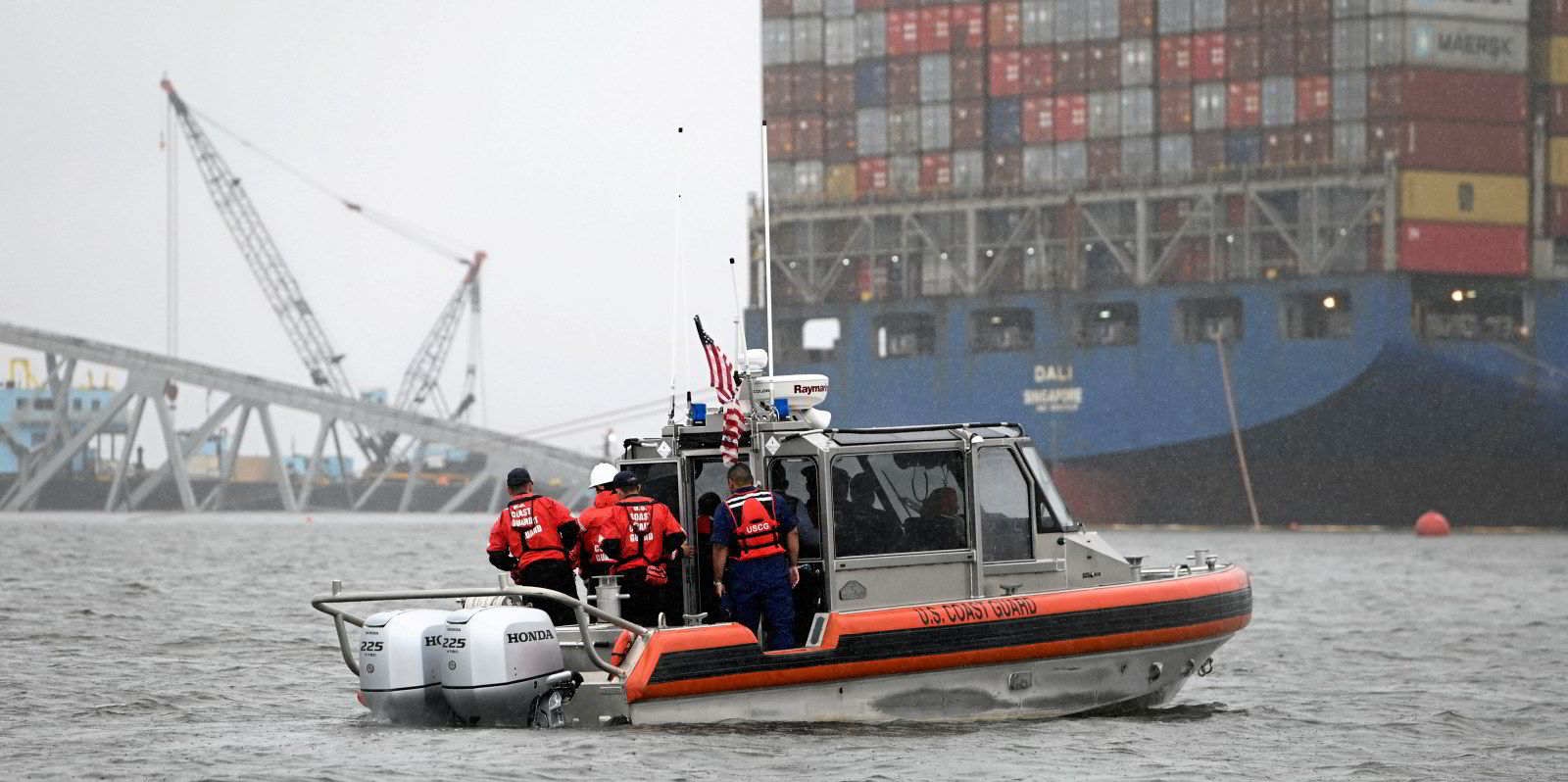Video and pictures of a container ship flattening the Francis Scott Key Bridge in Baltimore immediately spread to every major news channel.
Since the tragic accident in late March, the 9,962-teu Dali (built 2015) and the mangled remains of the iconic bridge have become a striking yet familiar sight.
However, almost two weeks on from the accident, little has been heard from the seafarers who remain on board the ship.
Synergy Marine, the ship manager responsible for the vessel and its crew, has been shielding them from media attention while they help with the salvage operations.
Ships crews are not unaccustomed to hardship. These 22 seafarers would by now be in the middle of the ocean heading south-east on a month-long voyage from Baltimore to Colombo, Sri Lanka.
It is a voyage with little to see other than the sea and its changing swell and frequently bad weather. They would have been living off the food and fresh water on board for the voyage, just as they are today.
The only difference is that the shipboard routine of a voyage has been shattered. The crew have to look, every day, at the mangled wreckage of a steel bridge and their ship, and have their living space overrun by US officials and salvors.
Darrell Wilson, spokesman for Synergy Marine in Baltimore, said the crew will be expected to get on with their normal duties in maintaining the ship. However, importantly, they will be assisting the salvage experts as efforts are made to clear away the bridge debris and any obstructing containers.

“They are working with the National Transportation Safety Board and Coast Guard as both agencies conduct investigations into what caused the accident. They are also still performing their normal jobs on the ship,” he said.
“Even though the ship is not moving right now, we still need a crew on board, but we also need a crew on board to help salvors clear the debris. No one knows that ship better than its own crew.”
Synergy said it has opened up the ship’s wifi to the crew.
It has also been keeping families in India up to date, said Wilson, who explained that there were no plans yet to repatriate part or all of the crew.
Local seafarer charities and representatives of the International Transport Workers’ Federation have been helping the crew keep in touch with their families.
Andrew Middleton from the Baltimore Apostleship of the Sea confirmed that it had supplied SIM cards and wifi hotspots to the ship and had been in regular contact to check on crew welfare.
“We have tried to keep a line of communication open with them while they are trapped out there in the middle of the river,” he told TradeWinds for the Wavelength news podcast. “It’s too fresh a trauma at the moment to ask them anything other than: ‘Are you okay?’”





